Gardening is a fulfilling and rewarding activity that can provide physical, mental, and emotional well-being. However, if you’re a beginner, it’s important to understand the basics before you start. This includes choosing the right plants for your space, understanding soil preparation, and knowing how to properly water your plants.
Key Takeaways:
- Soil preparation is crucial for successful gardening.
- Compact plant varieties and containers can maximize small spaces.
- Proper watering techniques are essential for indoor plants.
- Composting can reduce waste and create nutrient-rich soil.
- Pruning helps promote healthy growth, but be careful not to over-prune.
- Understanding your hardiness zone and researching pests can help in planning and protecting your plants.
Understanding the Basics of Gardening
Before starting, it’s important to understand the basics of gardening. As a beginner, the first step is to assess the quality of your soil. This can be done by testing its pH level, nutrient content, and texture. Adjusting the pH level and adding organic matter can improve soil structure and promote healthy plant growth.
For those with limited space, container gardening and vertical gardening techniques are recommended. Choosing the right plants for your environment, understanding their sunlight requirements, and providing the correct amount of water are crucial for their survival.
Regular maintenance tasks such as pruning, cleaning leaves, and controlling pests are also important. It’s also crucial to know your hardiness zone, evaluate your soil, and take into account the mature size of plants before planting. Additionally, learning about your region’s frost dates and researching common pests can help you plan and protect your garden.
By following these basic gardening tips, beginners can feel confident and successful in their gardening endeavors. With time and practice, you can become a skilled gardener and enjoy the beauty and satisfaction of growing your own plants.
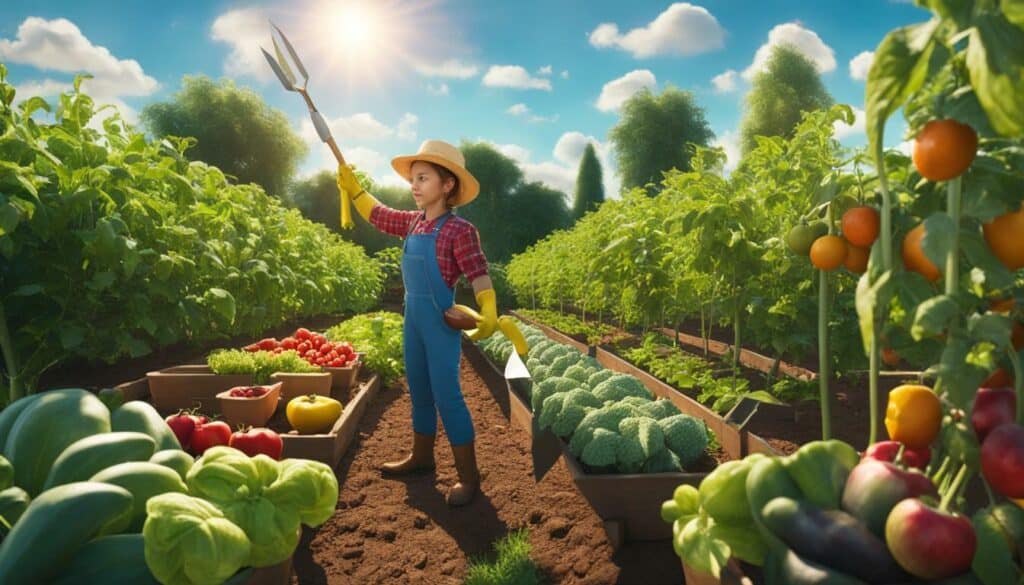
Soil Preparation for Successful Gardening
Soil preparation is essential for successful gardening. Before beginning to plant, it is crucial to test the pH level, nutrient content, and texture of the soil. Adjusting the pH level with lime or sulfur is essential to ensure proper nutrient absorption by plants. Adding organic matter can improve soil structure and water-holding capacity while promoting healthy microbial activity.
Tilling may be necessary for compacted clay soils, but over-tilling should be avoided to prevent damage to beneficial organisms and erosion problems. Mulching after planting helps prevent evaporation and weed growth during dry periods.
For small spaces, it is best to choose compact varieties of vegetables and herbs or try growing them in containers with good drainage. Vertical Gardening can be a useful technique for maximizing space. Building healthy soil by adding compost and natural amendments is important for organic gardening. Installing drip irrigation systems or watering by hand with a watering can can help conserve water while keeping plants hydrated.
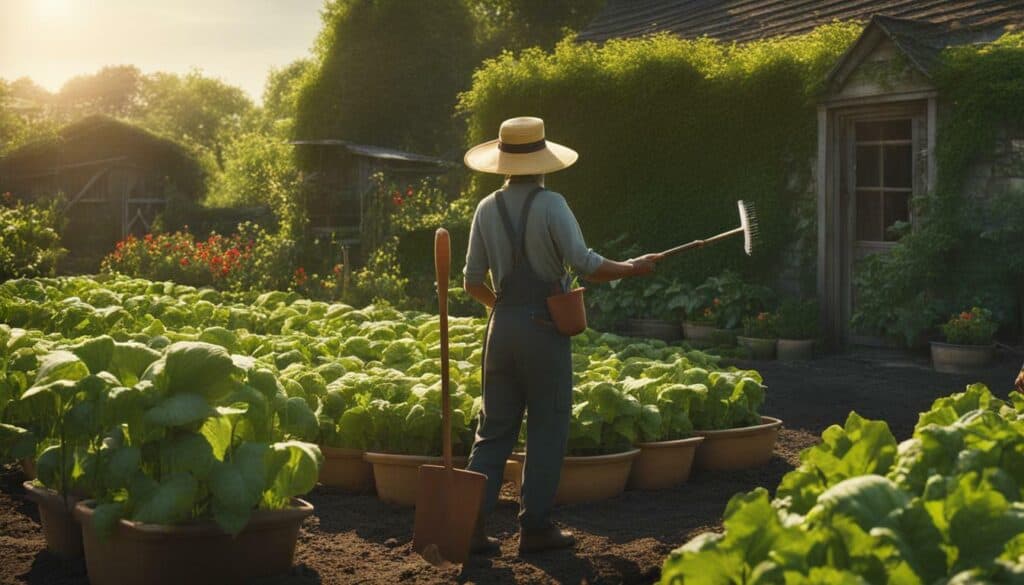
When container gardening, it is essential to choose containers with drainage holes and fill them with high-quality soil formulated for container gardening. Regular fertilization is needed since nutrients leach out of containers quickly. Most vegetables need six hours of sunlight daily, and regular pest control measures should be taken to prevent damage.
Watering indoor plants can be tricky, and it is important to water thoroughly until excess water drains out of the bottom of the pot. Room temperature water and avoiding the use of hard water are recommended.
Various methods can be employed for natural pest control in gardens, such as diversifying plant species, companion planting, and using physical barriers or homemade organic sprays. Composting is an excellent way to reduce waste, create nutrient-rich soil, and promote healthy plant growth. The compost pile should be well-aerated, moist but not too wet, and preferably contained in a container to avoid attracting critters.
Pruning is an essential gardening task that involves removing dead, damaged, or diseased parts of plants to promote healthy growth. Pruning should be done at the right time and with sharp and clean tools to avoid plant stress and stunted growth. Attracting pollinators to the garden can be achieved by choosing plants with bright colors and fragrances, providing a water source, and creating nesting habitats.
Gardening in hot and dry climates requires selecting plants that can handle heat and drought. Using compost and mulch helps retain moisture in the soil. Understanding one’s hardiness zone, sunlight conditions, and desired maintenance level is crucial for successful gardening. Regular weeding, proper mulching, considering mature plant sizes, watering to establish newly planted plants, knowing frost dates, and researching local pests are important aspects of gardening.
Gardening in Small Spaces
Gardening in small spaces can be done through vertical gardening and container gardening. It’s important first to understand the basics of gardening to be successful in small space gardening. Soil preparation is crucial, so it’s recommended to test your soil’s pH level, nutrient content, and texture. Adjust the pH level using lime or sulfur, and add organic matter to improve soil structure.
When it comes to small space gardening, consider using containers and choosing compact varieties of plants. The containers you use should have drainage holes and be the appropriate size for your plants. Fill them with high-quality soil formulated for containers and fertilize frequently throughout the growing season.
| Tip: | Vertical gardening, using trellises or structures, can also maximize limited space. Focus on building healthy soil by adding compost and natural amendments for a thriving organic garden. |
|---|
Watering indoor plants can be tricky. It’s essential to water thoroughly until excess water starts coming out of the drainage holes. Use room temperature water or collect rainwater, as cold water can shock the plants.
It’s crucial to prevent pest infestations by diversifying your plants, using companion planting, and utilizing physical barriers or homemade organic sprays to control pests naturally. Composting is an excellent way to reduce waste, create nutrient-rich soil, and promote healthy plant growth. Ensure your compost pile is well aerated and add water to keep it moist.
| Tip: | Pruning is essential for promoting healthy growth. Remove dead or damaged parts of plants and avoid over-pruning. |
|---|
Choosing plants with bright colors and fragrances, providing water sources, and avoiding pesticides are effective ways to attract pollinators. Gardening in hot and dry climates requires selecting heat and drought-tolerant plants, using compost to retain moisture, and applying mulch to conserve water.
It’s also important to be mindful of your hardiness zone, sunlight conditions, maintenance threshold, and soil composition. Regular weeding and mulching are important for maintaining a successful garden. Consider the mature size of plants before planting to avoid overcrowding and provide adequate water for establishing newly planted plants.
Know your frost dates to plan your planting schedule accordingly and research pests in your area to take appropriate preventive measures. With proper planning and knowledge, gardening in small spaces can be enjoyable and fulfilling.
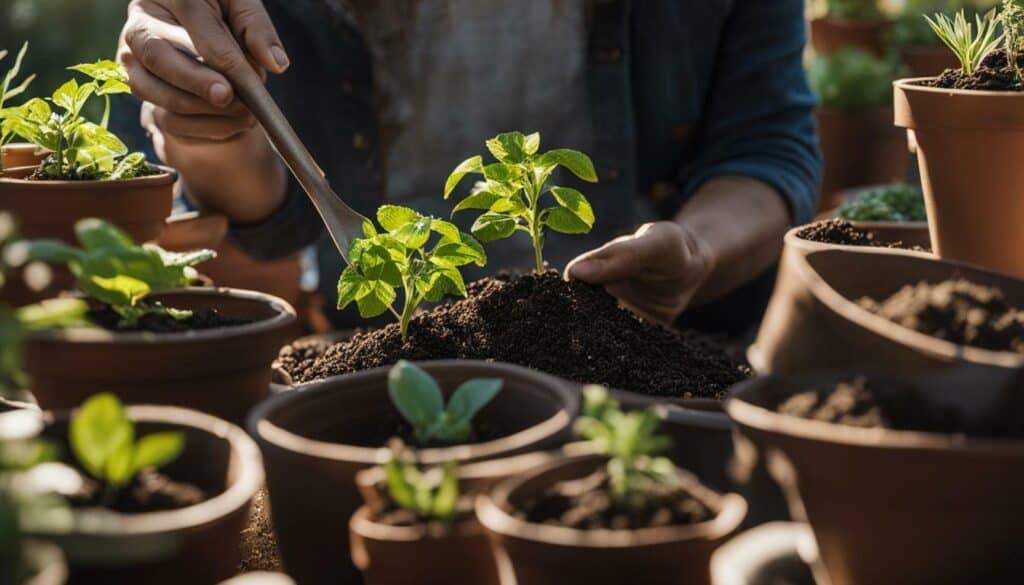
Mastering Proper Watering Techniques
Proper watering techniques are essential for successful gardening, especially for indoor plants. Before starting, testing the soil’s pH level, nutrient content, and texture is crucial. Adjusting the pH level and adding organic matter can improve soil quality.
Container gardening is a popular trend among beginners with limited space. It’s important to ensure proper drainage holes and the right soil are used for container gardening.
Watering Indoor Plants
Watering indoor plants should be done thoroughly, ensuring all parts of the root system receive adequate hydration. Understanding the sunlight conditions in the specific area is important, and plants should be placed accordingly. It’s important not to overwater plants, as it can lead to root rot.
Mulching helps regulate soil temperature and suppress weed growth. Understanding a plant’s mature size before planting is crucial to prevent overcrowding, which can lead to poor plant growth and disease.
Watering Newly Planted Plants
Watering newly planted plants is important for establishment. Providing adequate water during establishment helps the roots to establish and adapt to their new environment. The frequency of watering depends on the plant’s specific requirements, but generally, it’s best to water deeply and infrequently.
Knowing frost dates is crucial for planting and protecting plants. Researching pests in your area can help prevent damage to your garden. By implementing these beginner-friendly gardening tips, you can ensure a healthy garden and successful gardening experience.
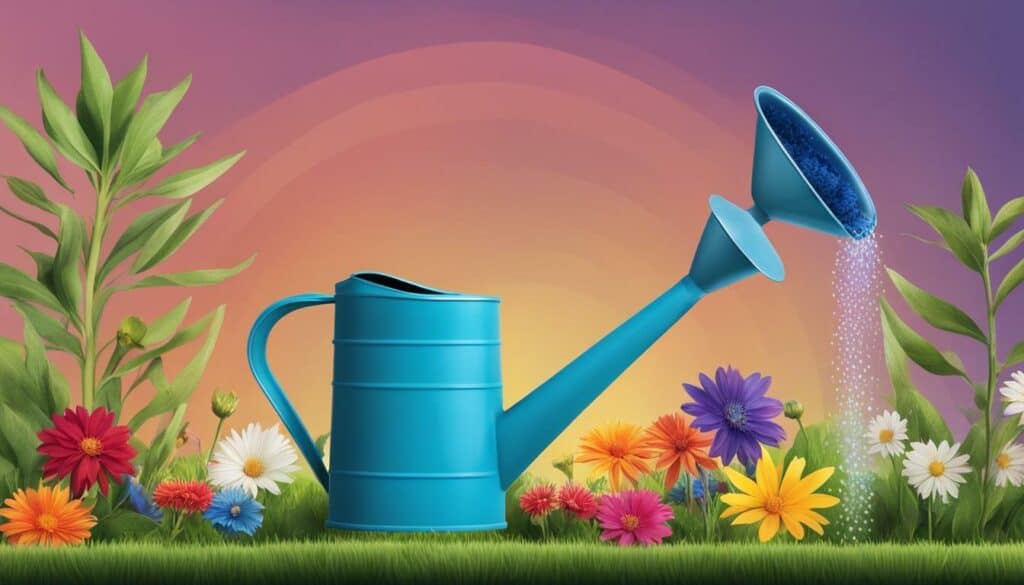
Natural Pest Control Methods
Natural pest control methods are an effective and eco-friendly way to manage pests in your garden. By diversifying your plants and cultivating healthy soil, you can prevent pest infestations before they occur.
Companion planting is a beginner-friendly gardening tip that involves planting different crops together to benefit one another. For instance, planting marigolds alongside your vegetables can deter pests, while planting herbs like basil and mint can attract pollinators like bees and butterflies.
| Natural Pest Control Methods | Tips |
|---|---|
| Physical Barriers | Mesh netting can help keep pests like rabbits and birds away from your plants. |
| Homemade Organic Sprays | Sprays made from garlic, hot pepper, and vinegar can repel pests without harming the environment. |
Mulching and composting are easy gardening tips to improve your soil and deter pests. Mulching with organic materials like wood chips and leaves can help retain moisture and prevent weed growth, while composting your organic waste can create nutrient-rich soil for your plants.
Proper pruning techniques are also essential for maintaining a healthy garden. By removing dead or diseased foliage, you can prevent pests from using them as a breeding ground. Additionally, attracting pollinators like bees and butterflies can contribute to a thriving garden. Choosing plants that are attractive to them, such as lavender and sunflowers, can help increase their presence in your garden.
When starting a garden for beginners, it’s important to understand your hardiness zone and evaluate your soil’s fertility. Regularly weeding and being aware of the pests specific to your region can also help protect your plants. By implementing these natural pest control methods, you can maintain a beautiful and pest-free garden while protecting the environment.
The Power of Composting
Composting is an excellent way to reduce waste and create nutrient-rich soil. It’s a simple yet powerful practice that can benefit both the environment and your garden.
To start composting, you’ll need to collect organic materials such as grass clippings, leaves, fruit and vegetable scraps, coffee grounds, and eggshells. Avoid including meat and dairy products as they can attract harmful pests.
Make sure to have a good mix of organic materials to ensure successful composting. Turning the compost pile regularly allows oxygen in, and adding water to keep the compost moist, but not too wet, is also crucial.
Using a container to hold the compost is recommended to avoid attracting critters.
The benefits of composting are many. Composting reduces waste, saves money, and improves soil structure and fertility. The compost also provides essential nutrients to plants, promoting healthy growth and yielding more abundant crops.
| Benefits of Composting: | |
|---|---|
| Reduces waste | Improves soil structure and fertility |
| Saves money | Provides essential nutrients to plants |
| Promotes healthy growth and yields more abundant crops |
Composting is an easy gardening tip that beginners can easily implement. With just a little effort, you can create nutrient-rich soil that will help your garden thrive.
The Importance of Pruning and Attracting Pollinators
Pruning is essential for promoting healthy growth, and attracting pollinators can be done by choosing plants that are attractive to them. Pruning involves removing dead or damaged parts of plants to promote healthy growth. It is important to prune plants at the right time and with the right tools to avoid stunted growth. When pruning, make sure to keep the natural shape of the plant in mind and avoid over-pruning.
Attracting pollinators, such as bees and butterflies, is crucial for successful pollination and the production of fruits and vegetables. By choosing plants that are attractive to pollinators, you can encourage their presence in your garden. Some of the best pollinator-friendly plants include lavender, sunflowers, and coneflowers. Providing pollinators with water sources and nesting habitats can also help attract them to your garden.
It is important to avoid the use of pesticides that can harm pollinators. Instead, opt for natural pest control methods such as companion planting and using insecticidal soap. These practices, along with proper soil preparation, watering techniques, and understanding the sunlight requirements of your plants, can help you create a thriving and beautiful garden.
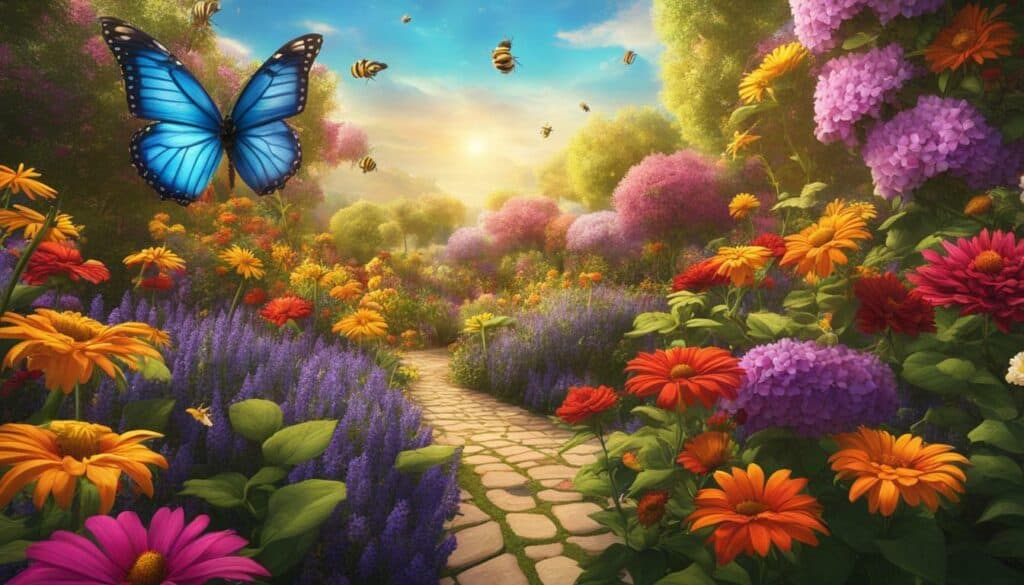
“By choosing plants that are attractive to pollinators and providing them with water sources and nesting habitats, you can encourage their presence in your garden.”
Gardening Tips for Hot and Dry Climates
Prioritizing plants that can handle hot and dry climates is crucial. When gardening in such environments, it’s important to select plants that are native to the area or have adapted to the prevailing conditions. These plants have developed strategies to survive harsh climates and are better suited for long-term health and growth.
In hot and dry climates, soil preparation is critical. Adding organic matter such as compost can significantly improve soil structure, water-holding capacity, and nutrient availability. Mulching can also help conserve moisture and prevent weed growth, which compete for essential resources.
Container gardening is an excellent option for gardening in limited spaces or places where soil quality is poor. However, it’s essential to select a container with proper drainage and choose the right soil mix for the plants you’re growing. Gardeners should regularly check and monitor the soil moisture levels to prevent underwatering or overwatering.
Watering indoor plants can be challenging and requires careful attention. When watering, it’s best to water thoroughly until excess water comes out of the drainage holes. Avoid overwatering or underwatering, which can lead to root rot or stunted growth. Room temperature water is ideal for watering indoor plants.
For natural pest control, diversifying plants and companion planting can significantly reduce the likelihood of infestations. Gardeners can attract and maintain pollinator populations by creating nesting habitats and avoiding pesticides. Companion planting is an excellent way to attract beneficial insects that prey on harmful pests, such as ladybugs, praying mantises, and hoverflies.
Composting is another essential practice for successful gardening. It helps reduce waste and provides nutrient-rich soil for plants. Gardeners should aim to compost a mixture of “green” and “brown” materials, such as kitchen waste, yard trimmings, and leaves.
Understanding your hardiness zone, sunlight conditions, desired maintenance level, and soil composition are crucial for successful gardening. Regular weeding, mulching, considering mature plant sizes, and proper watering techniques are important practices to cultivate healthy plants in hot and dry climates. Knowing the frost dates in your area and being aware of potential pests are also critical factors for a thriving garden.
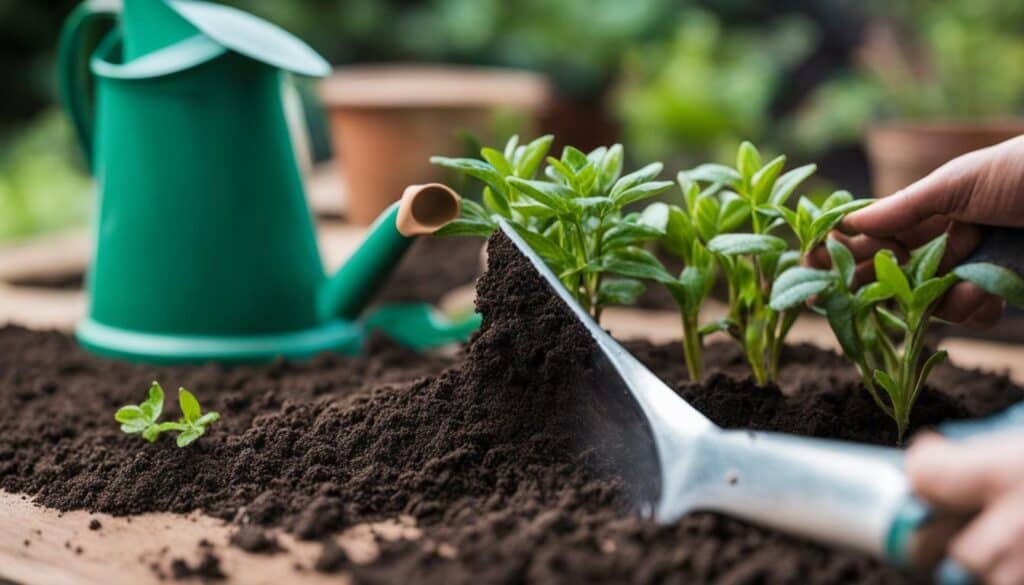
“Gardening in hot and dry climates requires special attention and considerations. By selecting appropriate plants, preparing the soil, natural pest control methods, proper watering techniques, and other essential practices, beginners can successfully cultivate healthy and thriving gardens even in harsh climates.”
Key Considerations for Successful Gardening
Understanding your hardiness zone and sunlight conditions, evaluating your maintenance threshold, knowing your soil, regular weeding, using mulch, considering mature sizes, establishing newly planted plants through proper watering, knowing frost dates, and researching pests in your area are important tips for successful gardening.
To start, it’s essential to understand your hardiness zone and sunlight conditions. This will help you select plants that are suitable for your area and ensure that they receive the proper amount of sunlight.
Evaluating your maintenance threshold is also crucial. Consider how much time and effort you can realistically dedicate to your garden. This will help you select plants that match your lifestyle and preferences.
Knowing your soil is key to successful gardening. Test your soil to determine its pH level and nutrient content. This will help you determine which plants will thrive in your garden and identify any necessary soil amendments.
Regular weeding is essential to maintain a healthy garden. Remove any weeds as soon as they appear to prevent them from competing with your plants for nutrients and water.
Using mulch is another effective way to maintain a healthy garden. Apply a layer of mulch to retain moisture, suppress weeds, and regulate soil temperature.
Considering mature sizes is important when selecting plants for your garden. Ensure you have enough space for each plant to grow to its full size without overcrowding your garden.
Establishing newly planted plants through proper watering is also crucial. Water your plants deeply and frequently to help them establish strong roots.
Knowing your frost dates is important for selecting plants that can survive in your climate. Consult a frost date chart to determine the average last and first frost dates in your area.
Finally, researching pests in your area is crucial to prevent infestations. Learn about common pests in your region and how to prevent and control them using natural methods.
By following these key considerations, beginners can feel confident in their gardening endeavors and enjoy a successful harvest.
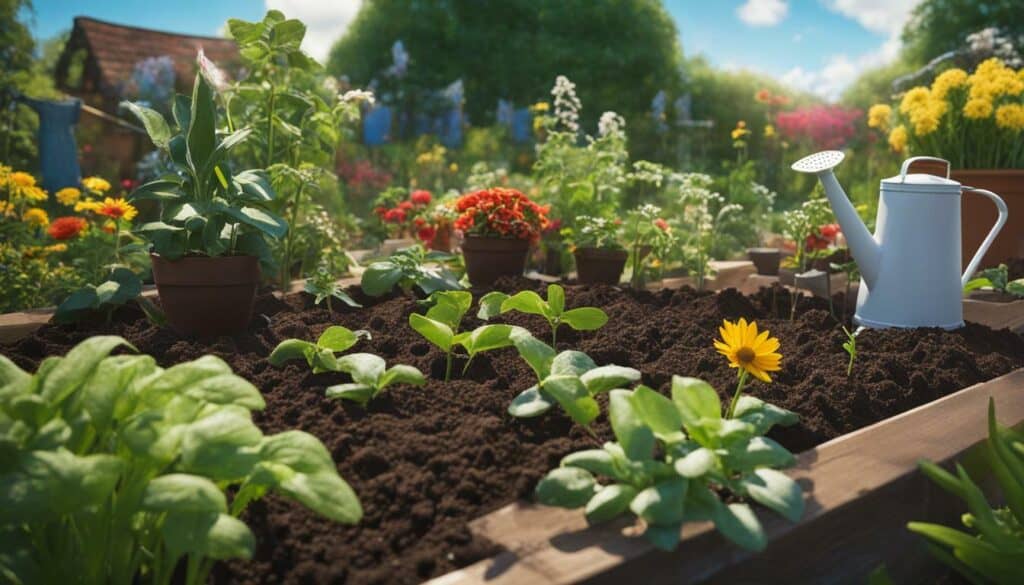
Conclusion
Starting your gardening journey can be a fulfilling and rewarding experience, and with these essential tips, you’ll be well-equipped to create a thriving garden. It is important to understand the basics of gardening, including preparing the soil and selecting plants suited to your climate and space limitations.
Gardening in small spaces can be achieved through container gardening or vertical gardening techniques. Proper watering techniques, such as watering thoroughly until excess water comes out of the drainage holes and avoiding overwatering, are essential for the health of indoor plants. Natural pest control methods, such as diversifying plant species, companion planting, using physical barriers, and homemade organic sprays, can help prevent pest infestations. Composting is an excellent way to reduce waste and create nutrient-rich soil.
Pruning is important for promoting healthy growth and attracting pollinators, while selecting plants that are attractive to pollinators helps ensure successful gardening. Understanding hardiness zones, evaluating maintenance thresholds, and researching pests are also key considerations for successful gardening.
Overall, gardening can provide numerous benefits for physical, mental, and emotional well-being. By being knowledgeable about sunlight conditions, soil composition, regular weeding, using mulch, understanding plant sizes, watering to establish, and knowing frost dates, beginner gardeners can create a thriving garden. Start your gardening journey today with these beginner-friendly gardening tips.
FAQ
Q: What are some easy gardening tips for beginners?
A: Soil preparation is essential for successful gardening. Testing the soil’s pH level, adjusting it if necessary, and adding organic matter can improve soil structure.
Q: How can I garden in small spaces?
A: You can utilize vertical gardening and container gardening techniques to make the most of limited space.
Q: What are some proper watering techniques for indoor plants?
A: It’s important to water thoroughly and use room temperature water when watering indoor plants.
Q: How can I prevent pest infestations in my garden?
A: Natural pest control methods, like diversifying plants and using physical barriers, can help prevent pest infestations.
Q: What is the benefit of composting?
A: Composting is an excellent way to reduce waste and create nutrient-rich soil for your garden.
Q: Why is pruning important in gardening?
A: Pruning promotes healthy growth in plants and is essential for maintaining their overall health.
Q: How can I attract pollinators to my garden?
A: By choosing plants that are attractive to pollinators, you can create an environment that attracts beneficial insects and promotes pollination.
Q: What are some gardening tips for hot and dry climates?
A: It’s important to prioritize plants that can handle hot and dry climates and ensure they receive adequate watering and protection from the sun.
Q: What are some key considerations for successful gardening?
A: Understanding your hardiness zone, evaluating your maintenance threshold, knowing your soil, regular weeding, using mulch, considering mature sizes, establishing newly planted plants through proper watering, knowing frost dates, and researching pests in your area are important tips for successful gardening.
What are the Essential Tips for Beginners to Start Gardening?
Starting a garden can be exciting for beginners. To ensure a smooth journey, here are some easy gardening tips for beginners. Begin by choosing the right plants for your climate and soil. Consider the amount of sunlight your garden receives and provide proper water and nutrition. Regularly check for pests and diseases, and don’t forget to prune and weed regularly. Lastly, enjoy the process and have patience.
Source Links
- https://plantcareforbeginners.com/articles/houseplants-101-how-to-get-a-green-thumb
- https://tillydesign.com/blog/gardening-tips-for-beginners/
- https://agriculturalmagazine.com/green-thumb-101-essential-gardening-tips-for-beginners/
- https://miraclegro.com/en-us/gardening-101/10-top-gardening-tips-for-beginners.html
- https://www.gardendesign.com/how-to/
- https://www.gardeningknowhow.com/garden-how-to/info/beginners-guide-to-gardening.htm
- https://www.gardendesign.com/soil/
- https://sowegrow.com/gardening-success-starts-with-soil-best-soil-preparations-and-tips/
- https://www.almanac.com/vegetable-gardening-for-beginners
- https://www.almanac.com/small-space-gardening-5-tips-growing-more
- https://www.thespruce.com/vegetable-gardening-in-small-spaces-1403451
- https://www.allaboutgardening.com/gardening-limited-space/
- https://www.thespruce.com/tips-for-watering-plants-5198467
- https://www.gardeners.com/how-to/when-to-water/8108.html
- https://www.creativevegetablegardener.com/watering-vegetable-garden/
- https://www.happysprout.com/gardening/beginner-gardener-pest-control/
- https://journeywithjill.net/gardening/2023/05/31/pest-control-tips-for-the-beginning-gardener/
- https://www.bhg.com/gardening/pests/insects-diseases-weeds/garden-pest-control/
- https://mashable.com/article/beginners-guide-to-composting
- https://www.gardeners.com/how-to/all-about-composting/5061.html
- https://www.homesteadingwhereyouare.com/2020/02/12/15-composting-tips-for-beginners/
- https://extension.umn.edu/planting-and-growing-guides/pruning-trees-and-shrubs
- https://www.hammerandaheadband.com/pollinator-garden-beginners-guide/
- https://www.biggerbetterblooms.com/post/creating-a-haven-for-pollinators-a-beginner-s-guide-to-pollinator-gardening
- https://gardenofluma.com/beginner-tips-for-a-thriving-garden-in-hot-climates/
- https://www.gardeners.com/how-to/gardening-techniques-for-dry-weather/5336.html
- https://donotdisturbgardening.com/tips-for-having-a-successful-garden-beginners-and-experts/
- https://thefreerangelife.com/11-tips-beginning-gardeners/
- https://www.gardenersworld.com/how-to/grow-plants/gardening-for-beginners-10-tips/
- https://www.realsimple.com/home-organizing/gardening/outdoor/gardening-101
- https://www.bhg.com/gardening/yard/garden-care/ten-steps-to-beginning-a-garden/
- https://greatist.com/connect/beginners-guide-to-gardening
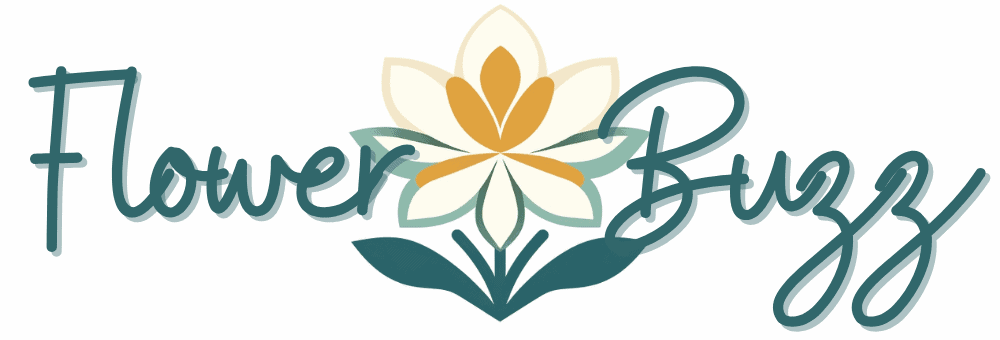
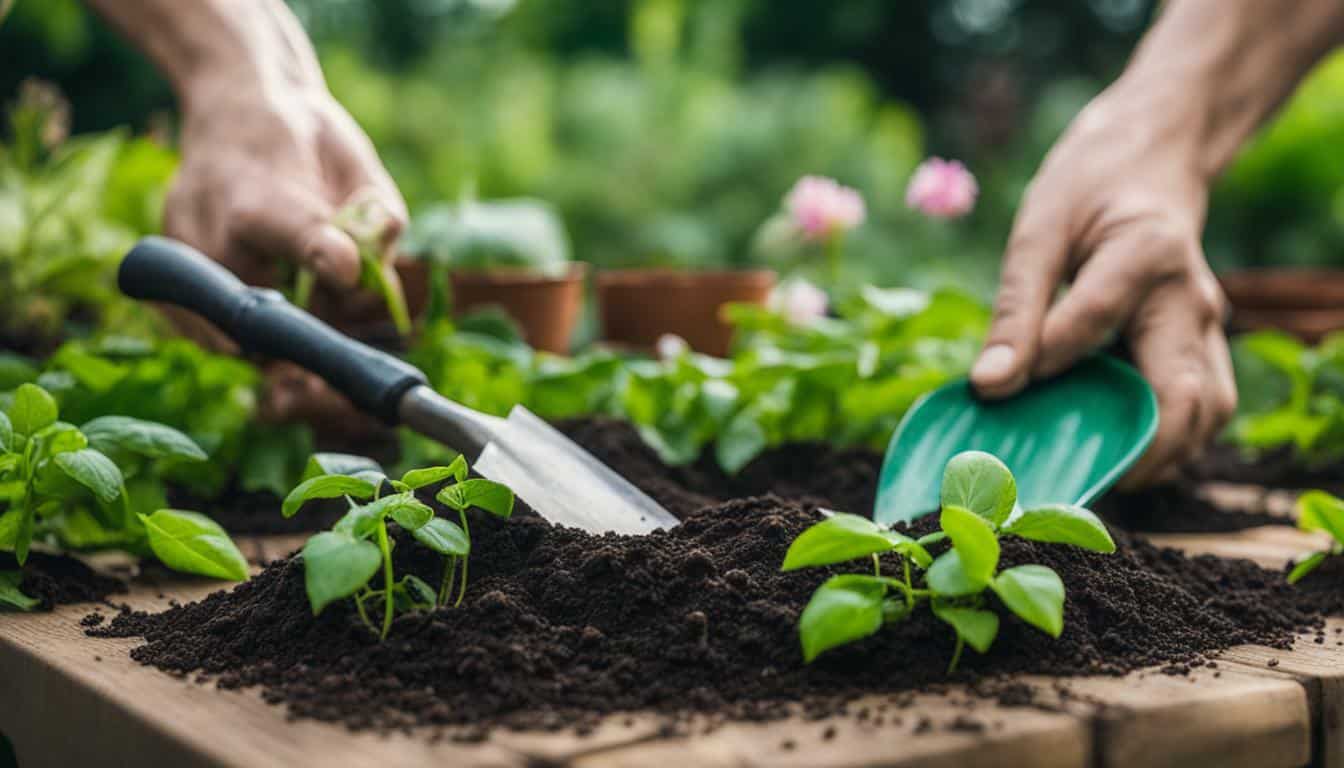
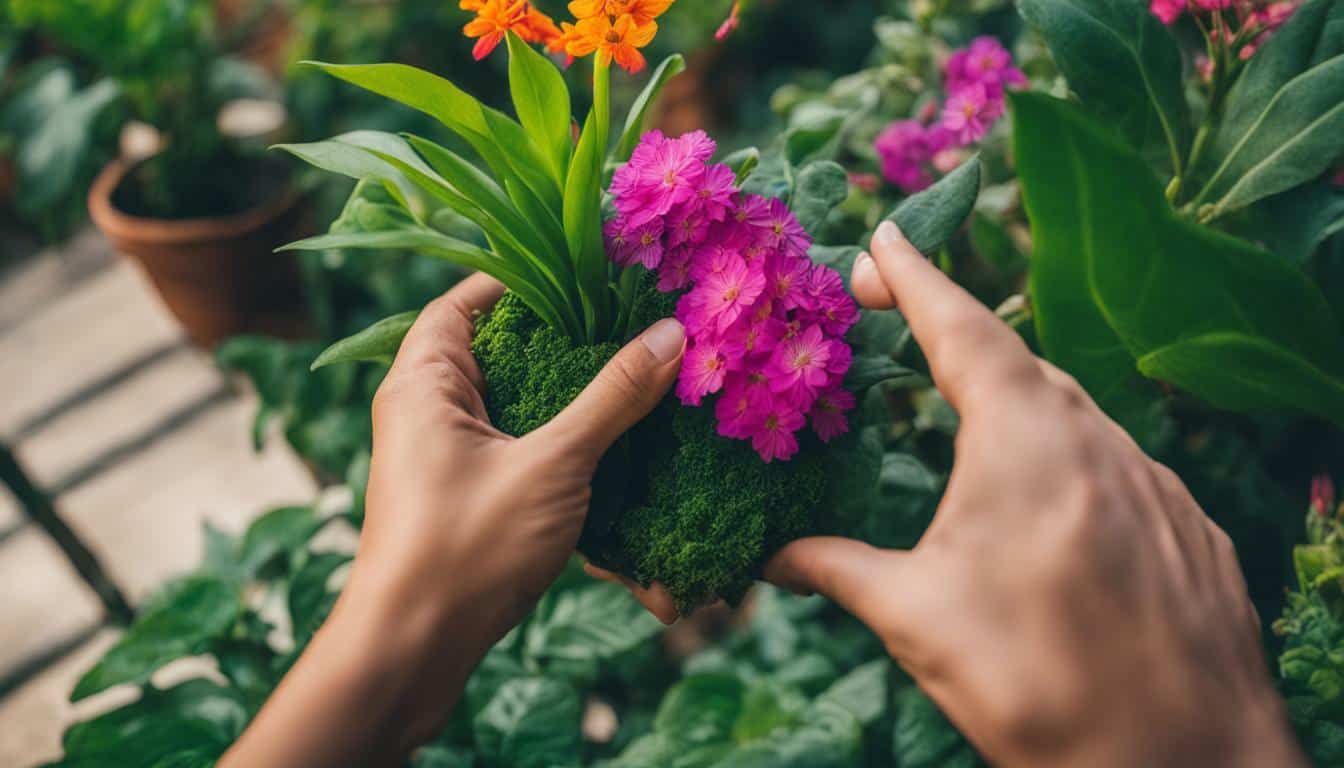
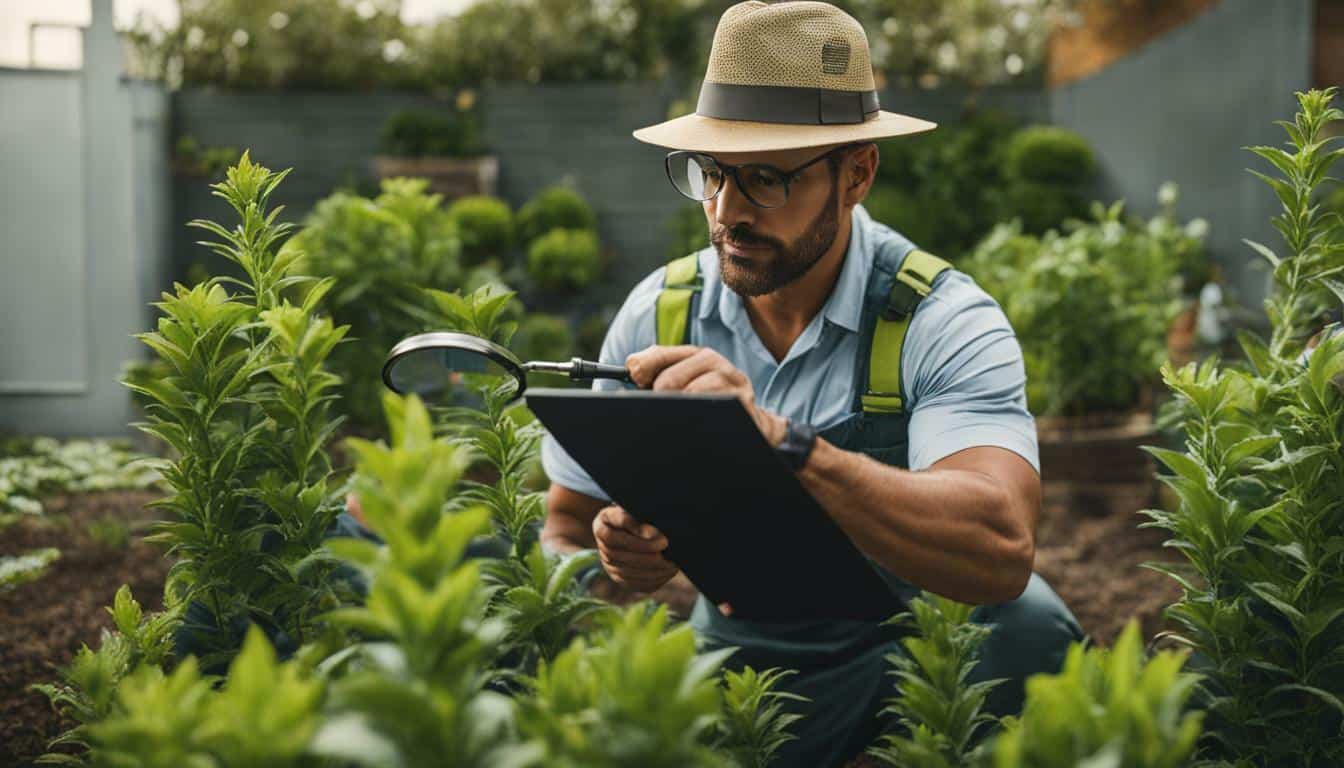

Leave a Reply